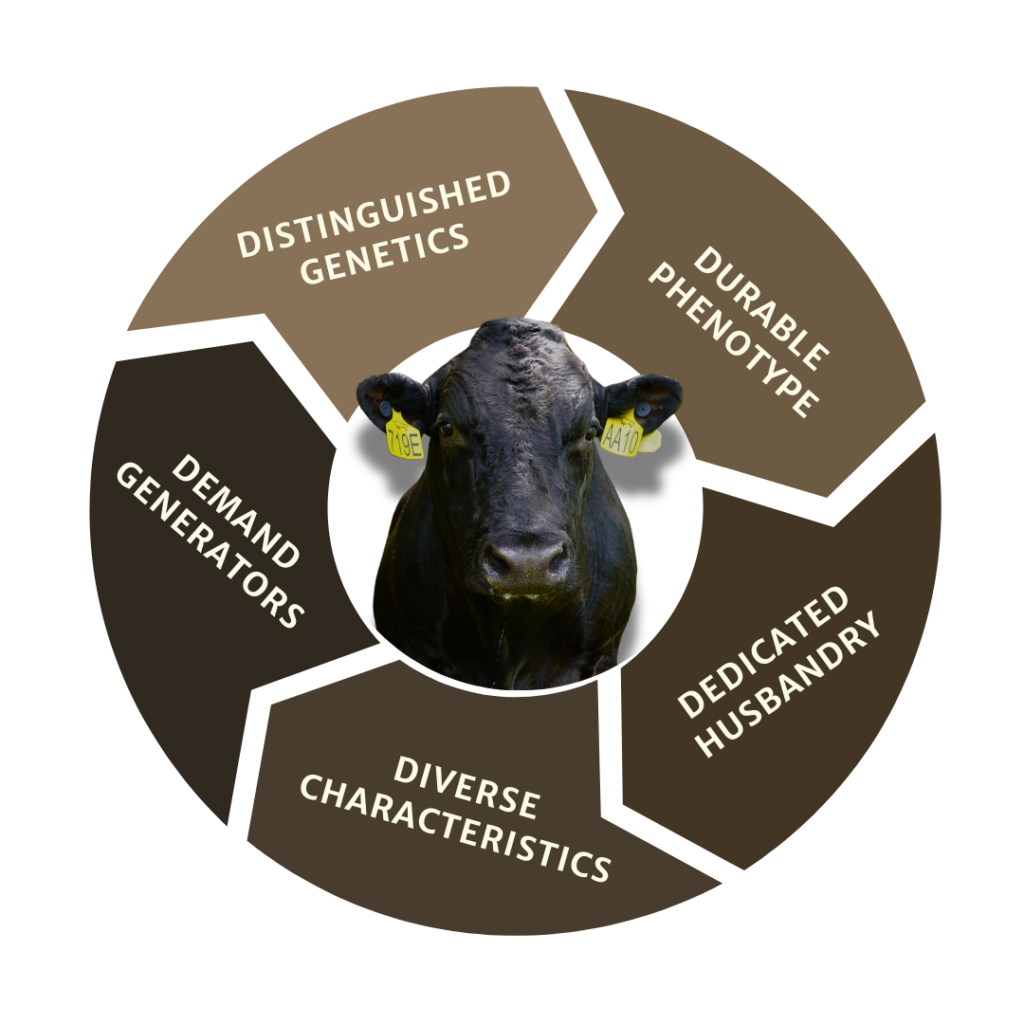The 5D Framework for Wagyu Excellence
…
At Old Three Wagyu, we are committed to producing world-class Wagyu cattle. Our 5D Framework is the cornerstone of our breeding philosophy, ensuring a future of excellence by focusing on key aspects that define the breed’s superior quality. It includes:
Distinguished Genetics, Diverse Characteristics, Demand Generators, Durable Phenotype, and Dedicated Husbandry.
Explore the foundation that sets our cattle apart:

Distinguished Genetics
Our Foundation, Your Future
We start with strong pedigrees rooted in proven bloodlines and foundation genetics from Japan. These animals embody the traits that made Wagyu world-renowned for their marbling, tenderness, and superior meat quality. Our focus on maintaining and improving these bloodlines ensures that each generation surpasses the last.
Diverse Characteristics
Balanced Traits
Through our proprietary rotational breeding, we ensure that our cattle possess well-rounded traits, allowing genetic diversity. With 16×16 analysis, we are able to group our animals logically and combine growth and marbling traits for cattle that perform across the board. This has allowed maximized productivity and provided a sense of balance throughout the herd.
Durable Phenotype
Phenotype & Functionality
Our cattle are bred for high productivity by optimizing both their physical traits and overall health. This ensures superior performance in the field, leading to higher yields, greater reproductive success, and longevity.
Demand Generators
Data-Driven Performance
Wagyu cattle are in high demand, and EBVs (Estimated Breeding Values) and EPDs (Expected Progeny Differences) are key to assessing and showcasing an animal’s genetic potential. We also leverage SCD (Stearoyl-CoA Desaturase) and tenderness scores, with future carcass data, to further enhance value and demand.
Dedicated Husbandry
Unmatched Care
Our commitment to best practices in animal health and welfare ensures that each animal is raised to its full genetic potential. With a focus on high standards of care, we ensure that our cattle not only meet but exceed expectations in quality, health, and performance.
Why Choose the 5D Framework?
Our 5D Framework offers a comprehensive approach to Wagyu breeding that aligns genetics, phenotype, and care with the future demands of the industry. It’s not just about producing better cattle—it’s about securing the future of your herd.
Ready to Elevate Your Herd?
Contact Old Three Wagyu today to learn how the 5D Framework can transform your breeding program and unlock unparalleled success.
